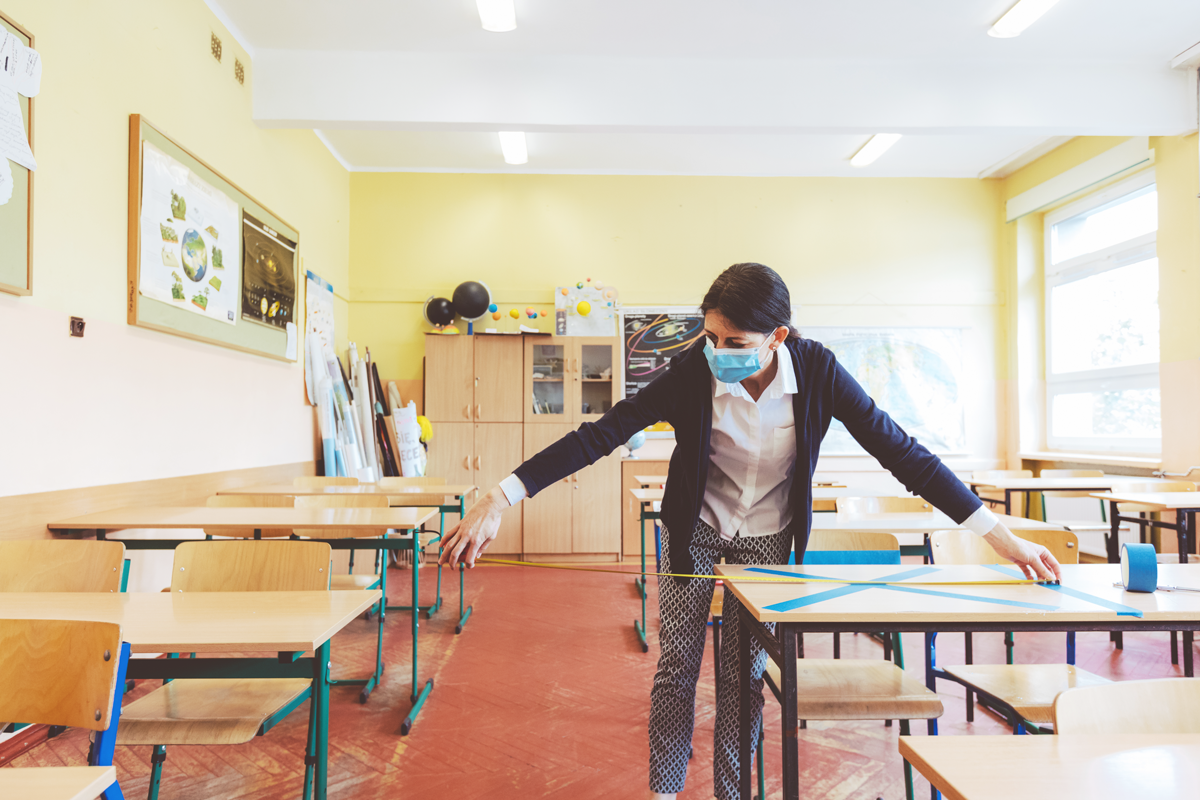The lawsuit alleges the federal rule — which the Department of Education estimates would affect roughly 6 to 8 percent of the $13 billion CARES aid for districts nationwide — is in violation of requirements established by Congress, the Administrative Procedure Act and the U.S. Constitution. The suit was filed in U.S. District of Court for the Northern District of California by Becerra, Nessel and attorneys general from Maine, New Mexico, Wisconsin and the District of Columbia.
“Congress set clear parameters on how to spend this money in order to confront the devastating effects of a pandemic on our schools,” Becerra said. “We’re going to court to make sure it ends up where it’s needed — the futures of our children are at stake.”
“This pandemic has exacerbated the inequities that impact our most vulnerable students, and our public schools need every last dollar to safely and effectively resume learning,” said State Superintendent of Public Instruction Tony Thurmond. “We fully support this legal action because we agree it is unconscionable to divert funds from the students who need these resources the most.”
The Department of Education rule for Providing Equitable Services to Students and Teachers in Non-Public Schools states that districts which share CARES Act with all their schools, including those that did not receive federal aid for low-income students in the last school year, must reserve money to provide certain services to all local private school students.
The CARES Act, however, dictates that aid to K–12 schools is required to be distributed in line with Title I of the Elementary and Secondary Education Act of 1965. These funds are aimed at aiding children from low-income families. Under the CARES Act, private schools should only be eligible for funds in certain circumstances in line with Title I criteria, the plaintiffs argue.
Through its federal partnership with the Association of California School Administrators, CSBA has strongly advocated against the maneuver to take resources away from needy students and improperly provide them to private school students.
The partnership highlighted many of its concerns in a May 8 letter to DeVos in response to original, nonbinding guidance that said school districts should reserve a portion of CARES Act funding to provide equitable services (such as tutoring and technology licenses) to all private school students. “As states and school districts work towards providing appropriate education programs and re-opening schools, we must ensure that CARES Act resources are utilized to meet the needs of public school students and educators, while providing equitable services to eligible students enrolled in private schools,” the letter reads.
DeVos and the department responded to a barrage of criticism by issuing the interim final rule on June 1 that merely offers financially struggling districts with a “false choice” that was never intended by Congress, Becerra said at a Tuesday press conference:
- In one scenario, districts could limit equitable services only for low-income private school students, but then they could also only send CARES aid to schools that received Title I aid for disadvantaged students in the last school year.
- In the second instance, districts could provide equitable services to private school students in general, and then have the freedom to provide CARES relief to schools regardless of their Title I status.





